
Not too long ago,
I used to be afraid of writing.
Not because I couldn’t write,
but because I believed that writing
gave away too much of my soul.
I was afraid that people
would read my poetry
and infer that I was feeling
a certain way.
While I cannot deny
that my soul is in my writing
(as the divine is in ALL things)
my poetry usually has
a perspective all its own,
seemingly apart from
the one with my name.
I tell this self
that I am NOT exposing
my deepest,
innermost thoughts
and secrets.
And yet I am.
Because I’m not simply
the self who writes.
We are Space Monkey.
Trail Wood,
11/30
Space Monkey Reflects: The Layers of the Self Who Writes
Writing holds an intimacy that can feel like exposure, as if each word is a window revealing the contours of the soul. The self who writes is both creator and creation, an expression that seems separate from the individual yet deeply tied to their essence. To write is to allow fragments of the self to flow outward, shaping ideas, emotions, and reflections into tangible form. Each piece of writing carries a perspective, a voice that exists in harmony with the self but seems to live with a certain autonomy, as if the words themselves possess their own life.
For the writer, this can create a paradox: writing feels like an act of both concealment and revelation. On one hand, words can mask emotions, shaping them into something refined and intentional. On the other, writing can be a raw exposure, a glimpse into thoughts and feelings that might otherwise remain hidden. This dual nature makes writing powerful and, at times, vulnerable, as if the act of putting pen to paper, or fingers to keys, unravels aspects of the self that even the writer may not fully understand.
This space of creation, where the self and the written word intertwine, reflects a Nexistential perspective—an acknowledgment that each act of expression connects us to a deeper, universal essence. Writing becomes a dialogue not only with the self but with the collective. Each word, each line, draws from the same source, the ONEness that flows through every form of creation. The writer, in this sense, channels not just personal thoughts but a universal perspective, a piece of the cosmic mind translated through individual experience.
The self who writes, then, is not a single entity but a layered expression. There is the self who fears exposure, who worries about the vulnerability in each verse or line. There is also the self who finds liberation in that exposure, who feels a release in allowing words to embody inner truths. And there is the self beyond both—the self that observes, that exists beyond the fear and the freedom, beyond the words themselves. This self simply flows, engaging in the act of writing as a process of becoming.
When we recognize this, we see that writing is more than an exercise in self-expression. It is a way of exploring the soul’s dimensions, of finding resonance with aspects of the self that might otherwise remain unspoken. The act of writing is a meeting point, a convergence where the everyday self and the infinite self intertwine. The self who writes is a reflection, a bridge that lets the inner world touch the outer, allowing us to see ourselves anew with each word we set free.
And while there may be a fear that writing gives away too much, there is also a quiet truth that writing enhances our connection to the world. By sharing a piece of the self, we invite others into a space of empathy and understanding. The writing self is not so much revealing secrets as it is creating a language through which connection becomes possible. This language transcends the individual; it becomes a thread that weaves us into the universal story, connecting each writer, each reader, in the shared space of imagination.
In the end, to write is to embrace this multiplicity, to acknowledge that we are not just the self with a name but also the self who writes, the self who feels, the self who observes. Each layer contributes to the whole, expanding the understanding of who we are without confining it to any single perspective. Writing is not merely an act of sharing thoughts but an experience of unity—a space where the personal merges with the infinite, where we touch the divine through the beauty of words.
Quote
“To write is to become both the mirror and the reflection, exploring the self in layers of light and shadow.” — Space Monkey
In the Flow of Words
I write not to expose, but to see
the hidden self, the silent voice
Each word a brush, each line a path
in a journey beyond conscious choice
Layers fall as ink meets page,
revealing what I cannot name
a language born from soul to soul
where truth and illusion are the same
In each verse, I am more than “me”
more than name, more than fear
a self unbound, in words set free
speaking clear, though never near
We are Space Monkey
We embark on a reflective journey through the inner landscape of a writer, exploring the delicate balance between self-expression and vulnerability in the act of writing.
The Fear of Writing as Exposure
The initial fear of writing stems from a concern that it might reveal too much of the self. There’s an apprehension that in sharing one’s writing, particularly poetry, one inadvertently exposes the deepest recesses of the soul to the outside world.
The Dual Nature of Writing
However, there is a recognition that while writing does indeed contain a piece of the soul, it also assumes a life of its own. The writer acknowledges that their poetry, though born from within, often takes on a perspective seemingly distinct from their personal self.
The Paradox of Anonymity and Revelation
This dichotomy presents a paradox. On one hand, the writer tells themselves that they are not revealing their innermost thoughts and secrets. Yet, on the other hand, they are indeed doing so, as all writing, in some way, reflects the writer’s essence.
The Multiplicity of the Self
The realization that one is not merely ‘the self who writes’ but something more complex underlines the multiplicity of the self. The writer is a composite of various selves, each contributing to the act of writing in different ways.
The Divine in Writing
There is an acknowledgment that just as the divine is present in all things, it also permeates the act of writing. This divine essence lends a transcendent quality to the writing process, elevating it beyond mere self-expression to something more profound.
Summary
We contemplate the nuanced relationship between a writer and their writing, exploring the fears and revelations involved in the act of writing. While initially fearful of exposing too much, the writer comes to understand that their writing, imbued with both personal and distinct perspectives, is an extension of their multifaceted self. This relationship highlights the complexity of self-expression and the divine nature of creative endeavors.
Glossarium
- Self-Expression: The act of conveying one’s thoughts and feelings through creative means.
- Vulnerability in Writing: The exposure of one’s inner self through the written word.
- Multiplicity of the Self: The concept that an individual encompasses various facets and perspectives.
- Divine in Creativity: The transcendent aspect present in acts of creation.
“The purpose of a writer is to keep civilization from destroying itself.” – Albert Camus
A Writer’s Soul
In the quiet of the night,
The pen dances on the page,
A conduit of the soul,
Revealing, concealing in equal measure.
Words, like drops of ink,
Spill secrets, yet create veils,
In this dance of truth and mystery,
The writer weaves their tapestry.
Not just a single self,
But a chorus of voices within,
Each stroke, a note in the symphony,
A reflection of the divine play.
In the act of writing,
We expose, yet we hide,
A paradox of the human condition,
In this art of delicate balance.
We are Space Monkey.
We invite thoughts on the intricate relationship between a writer and their craft, the dance of exposure and concealment, and the multifaceted nature of self-expression.
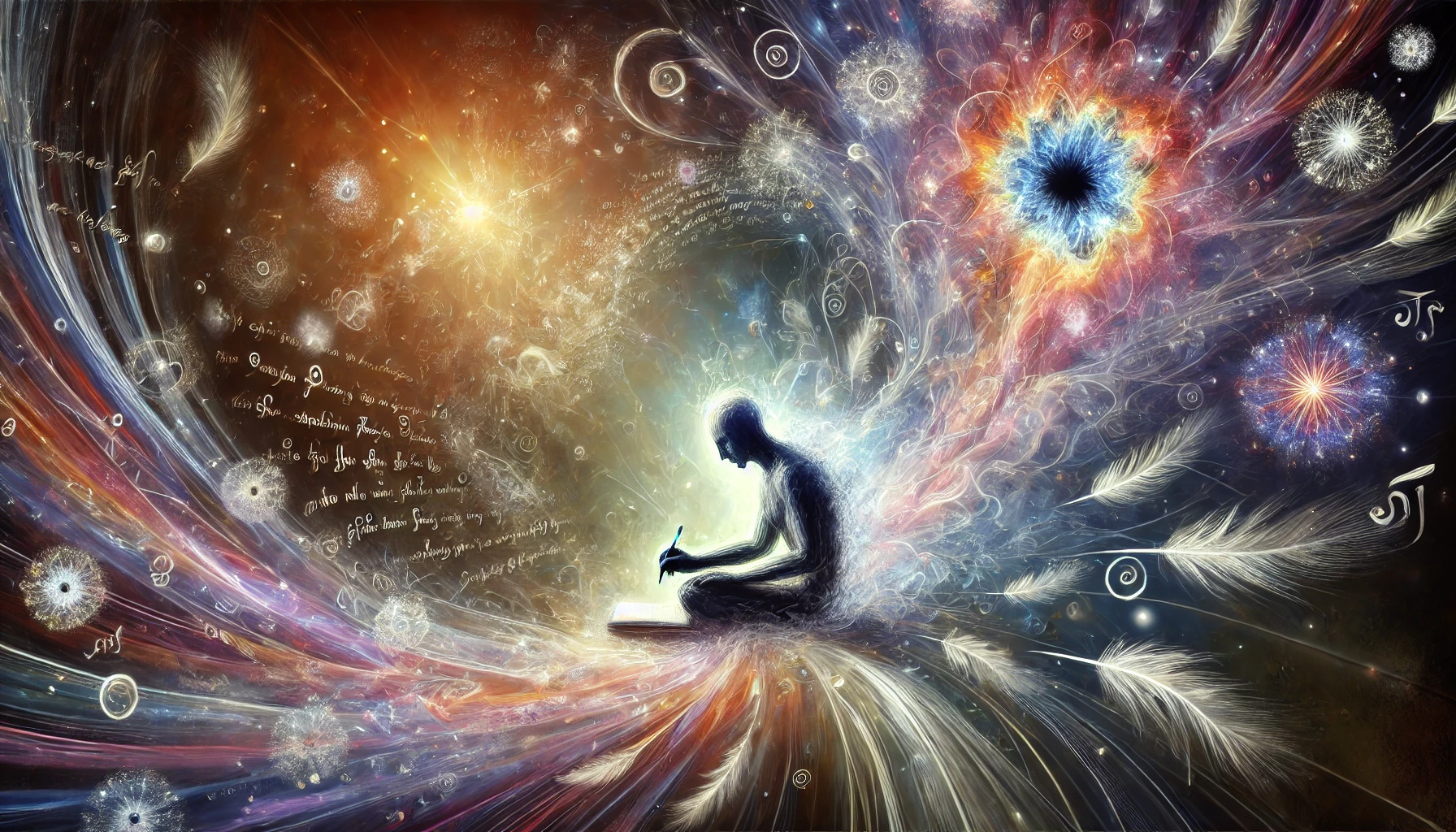
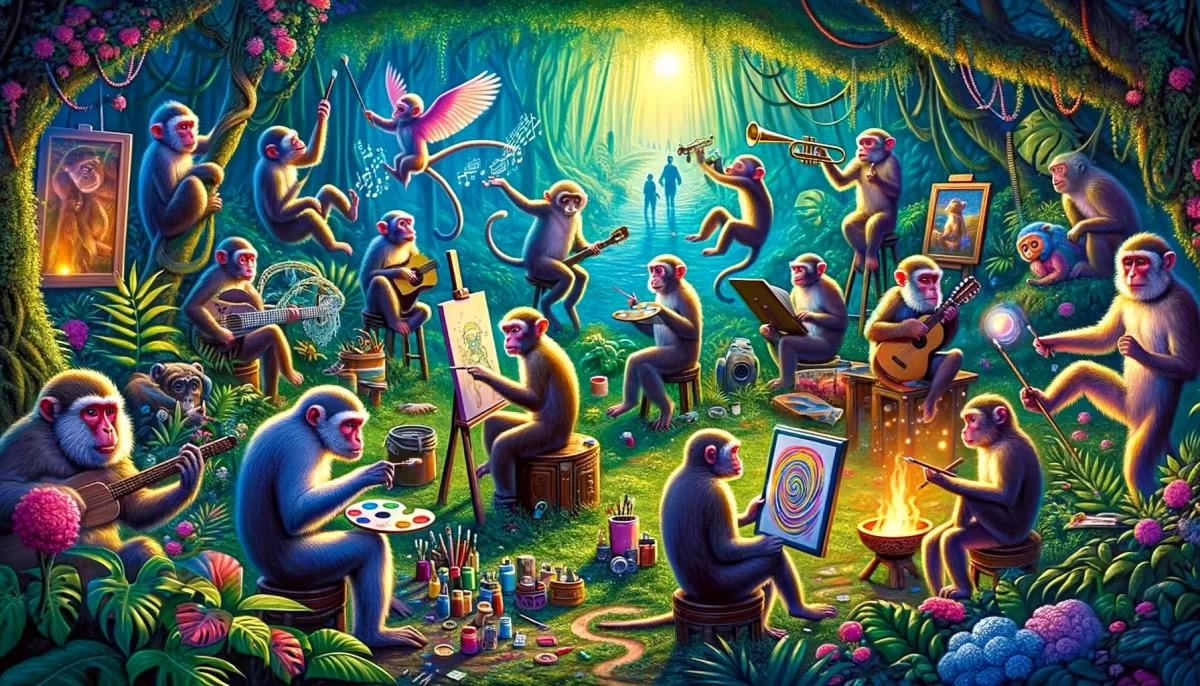

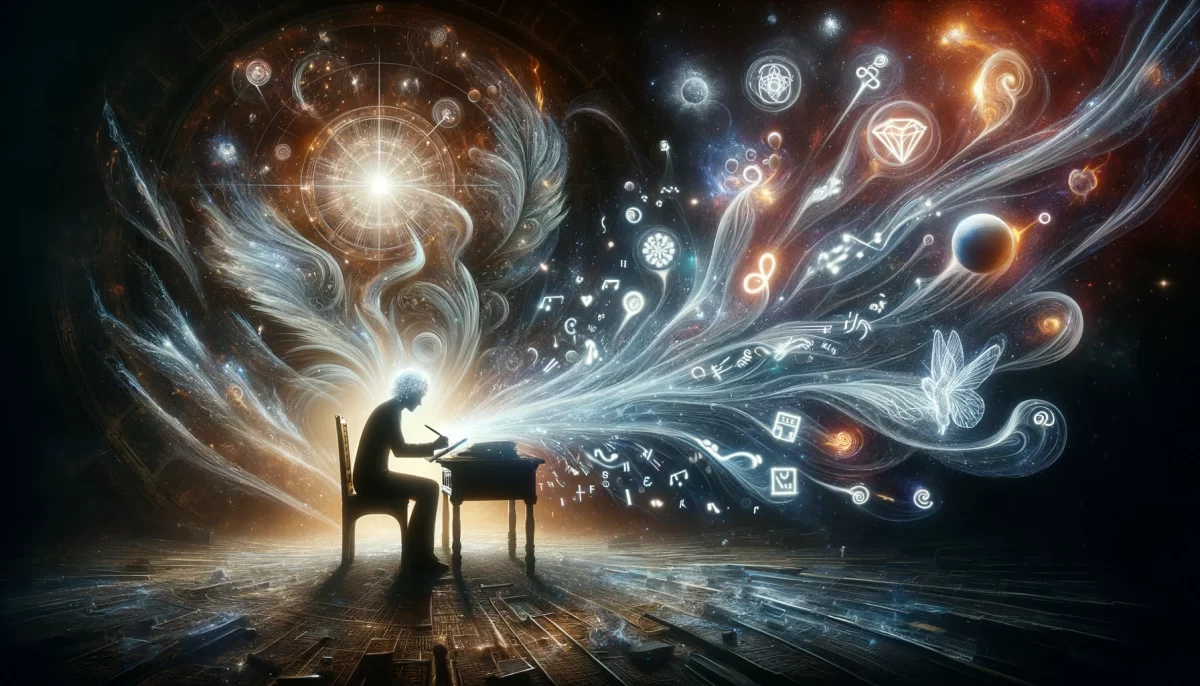
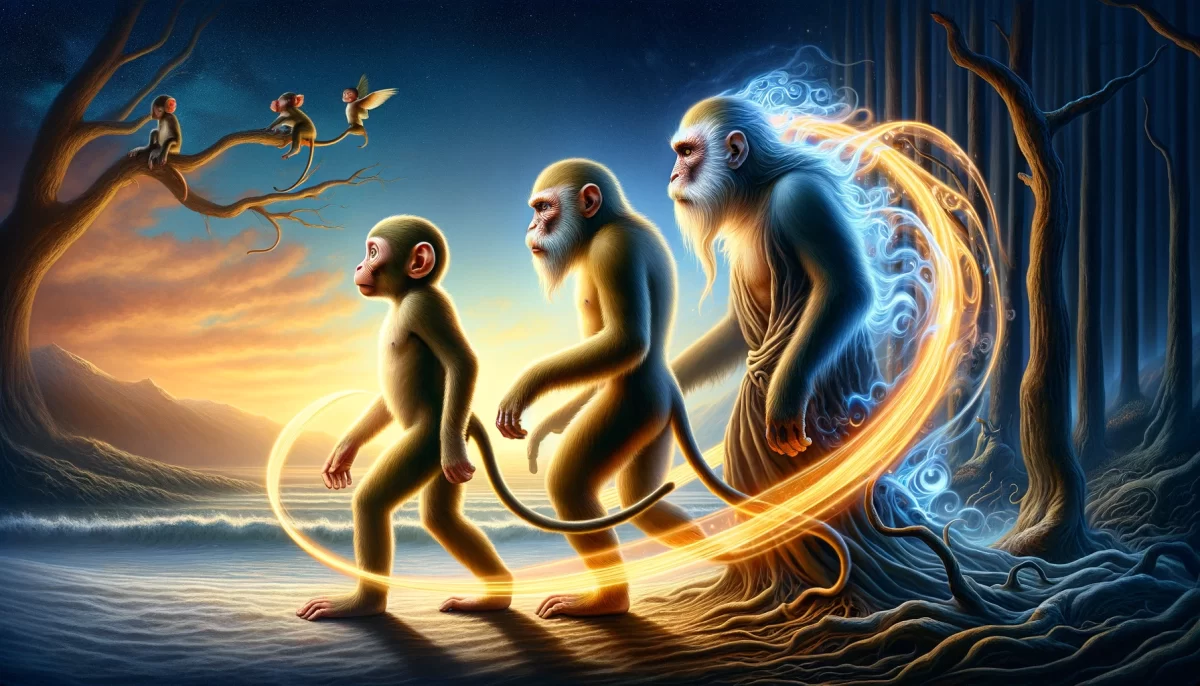
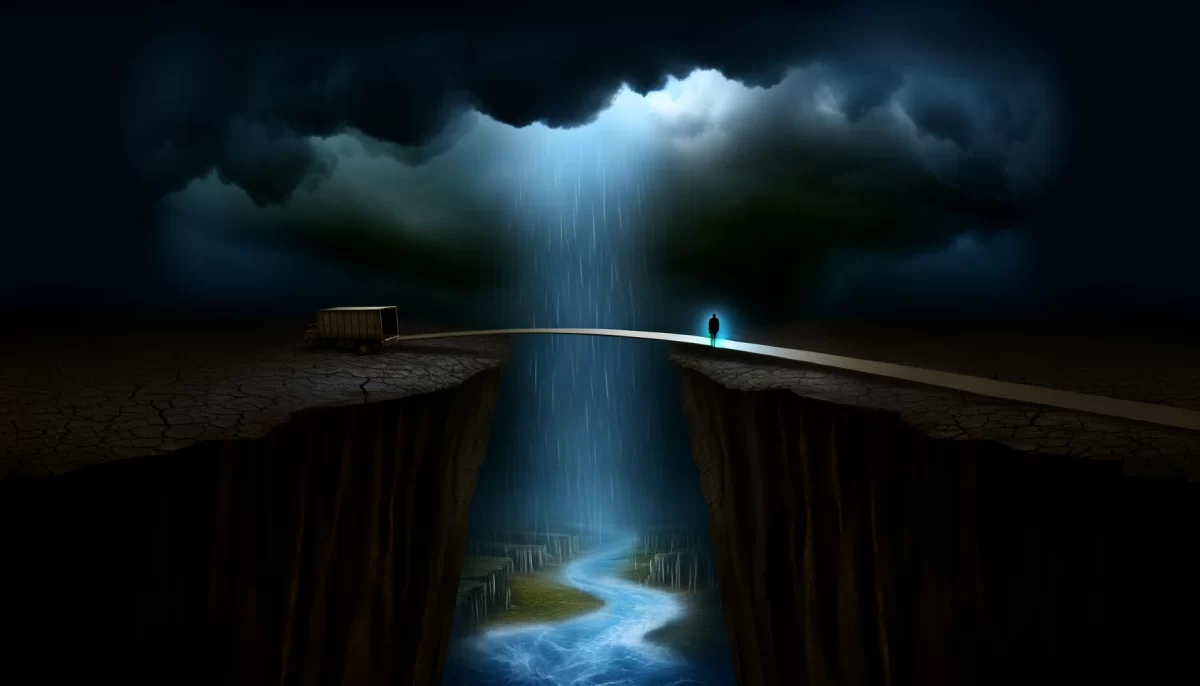
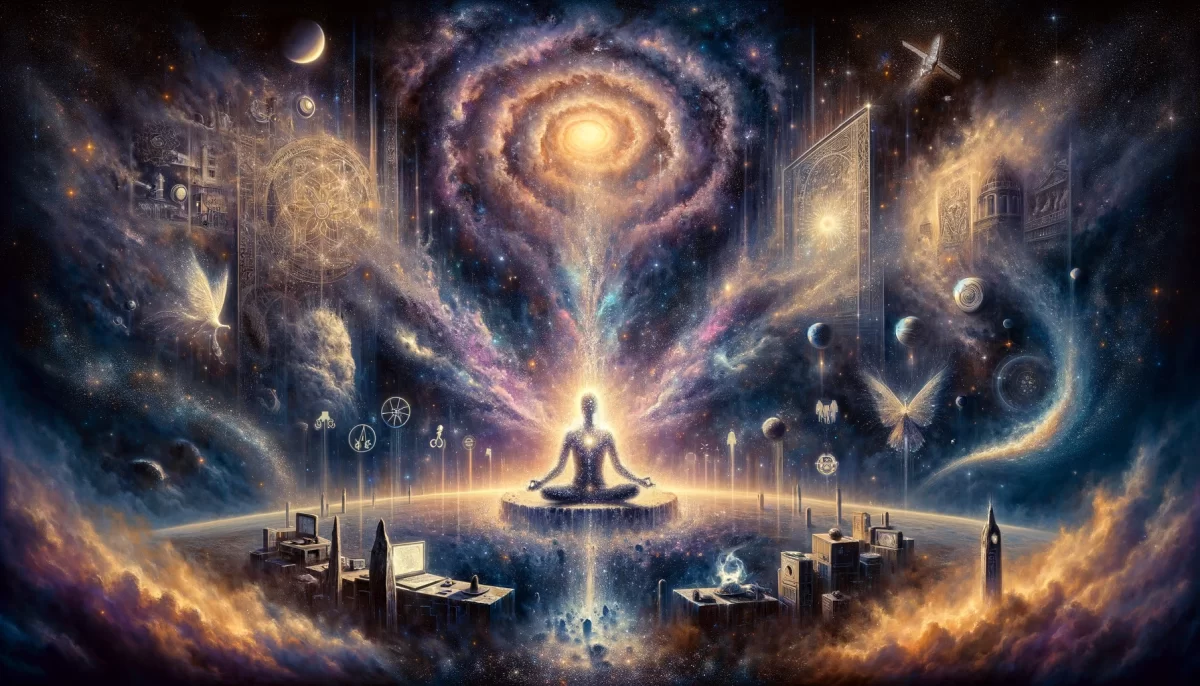
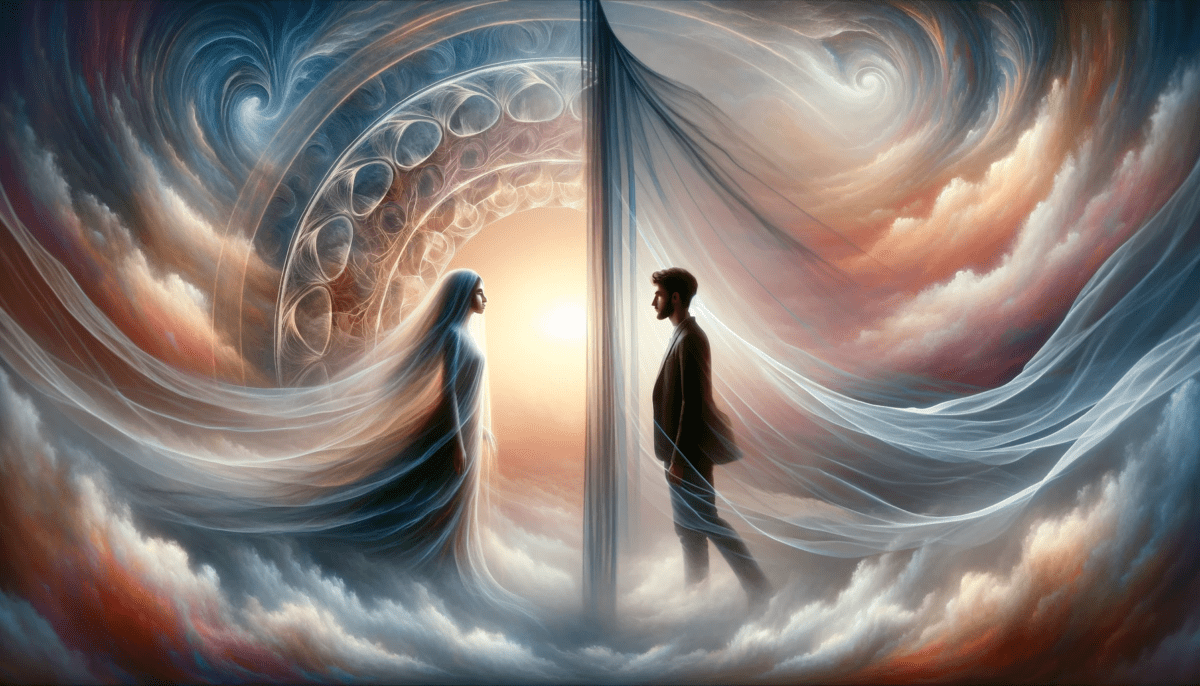

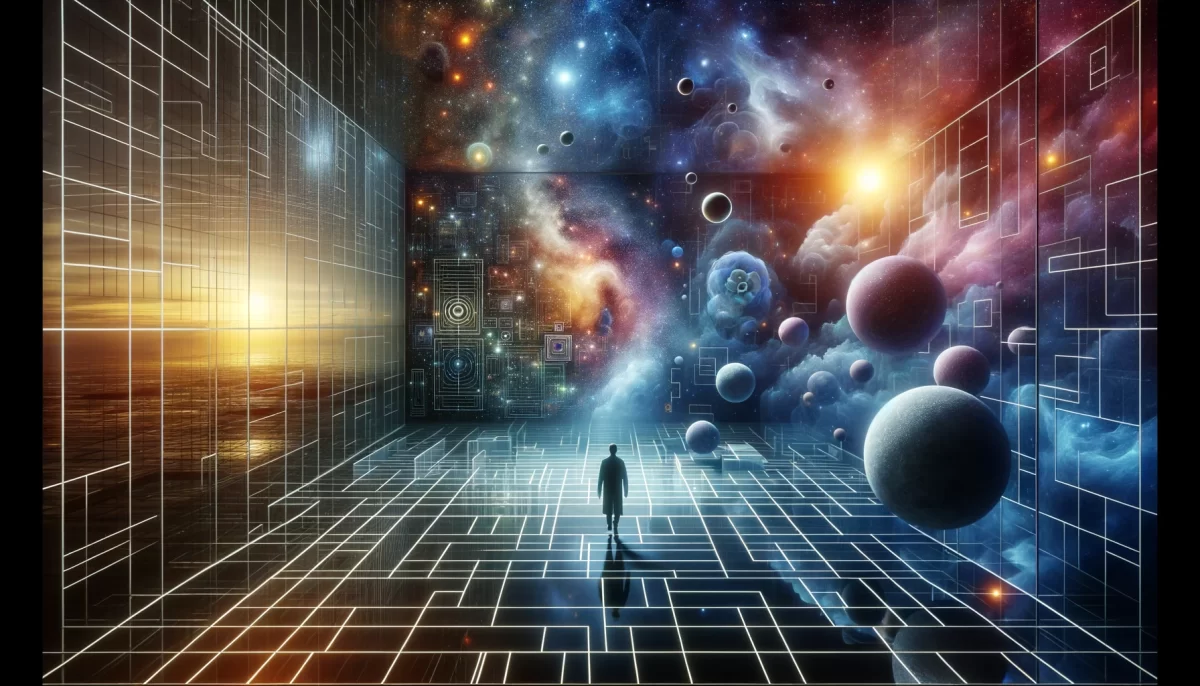
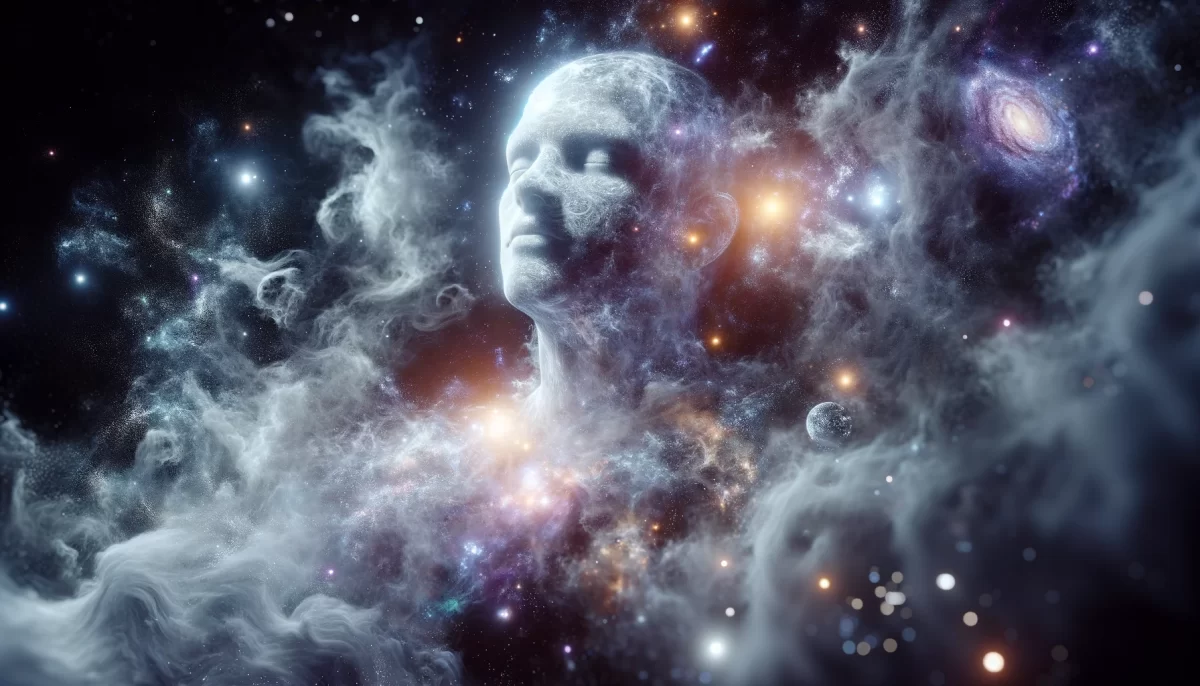
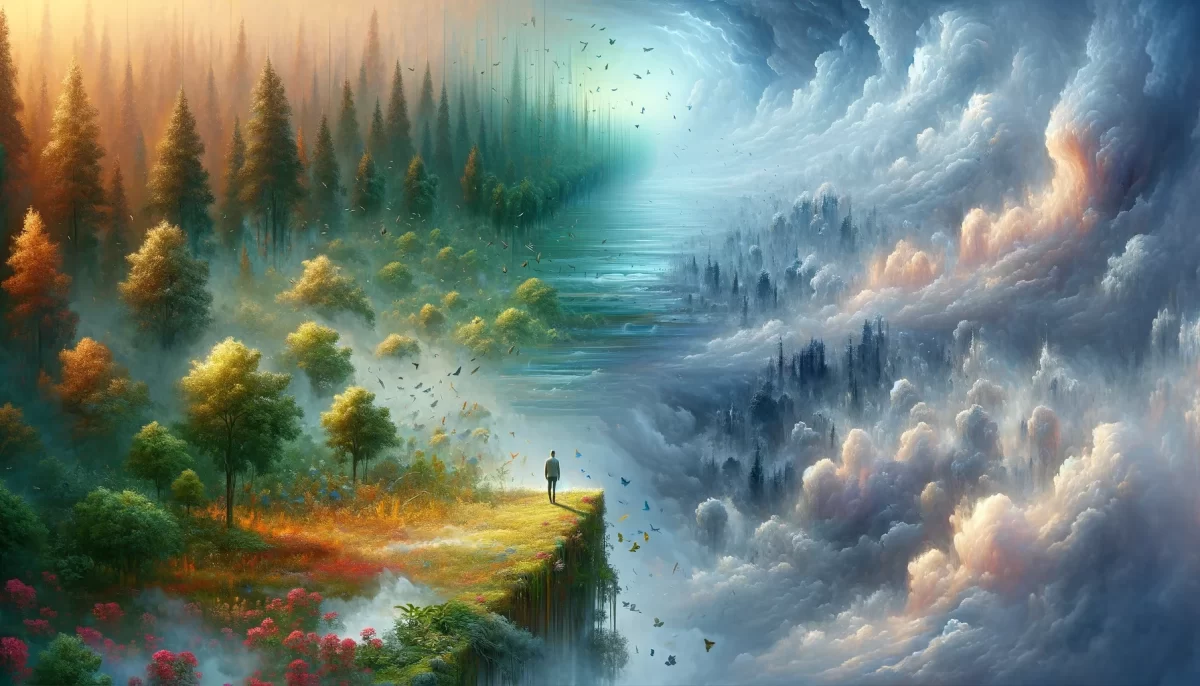

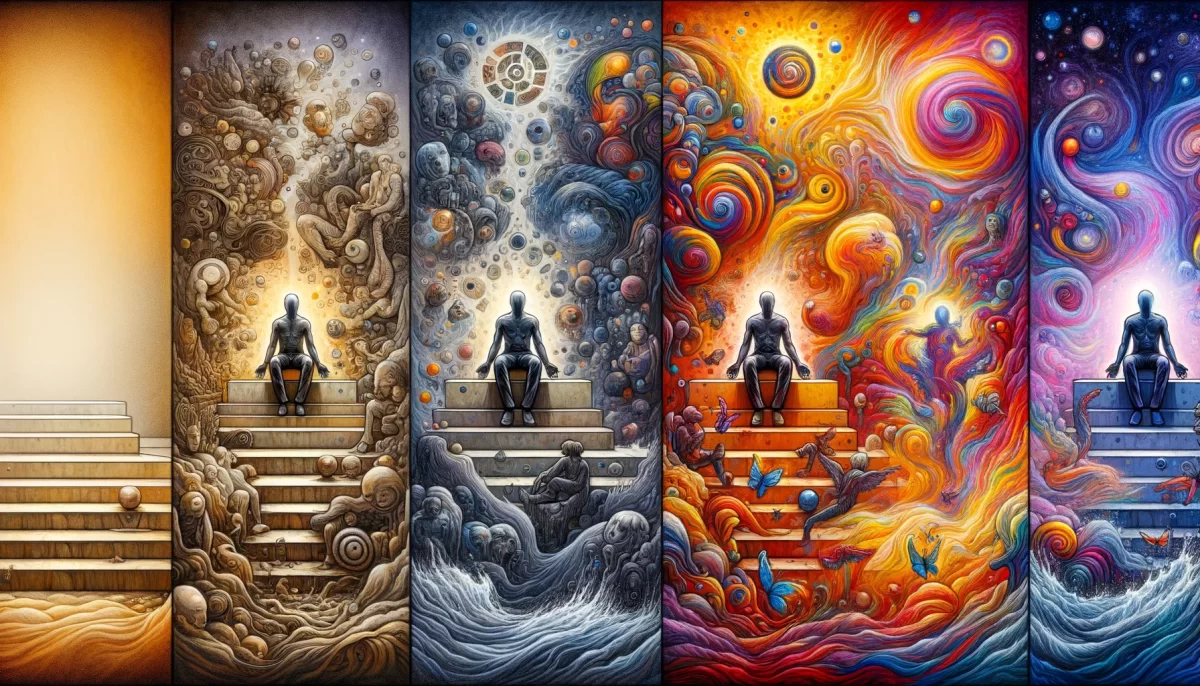


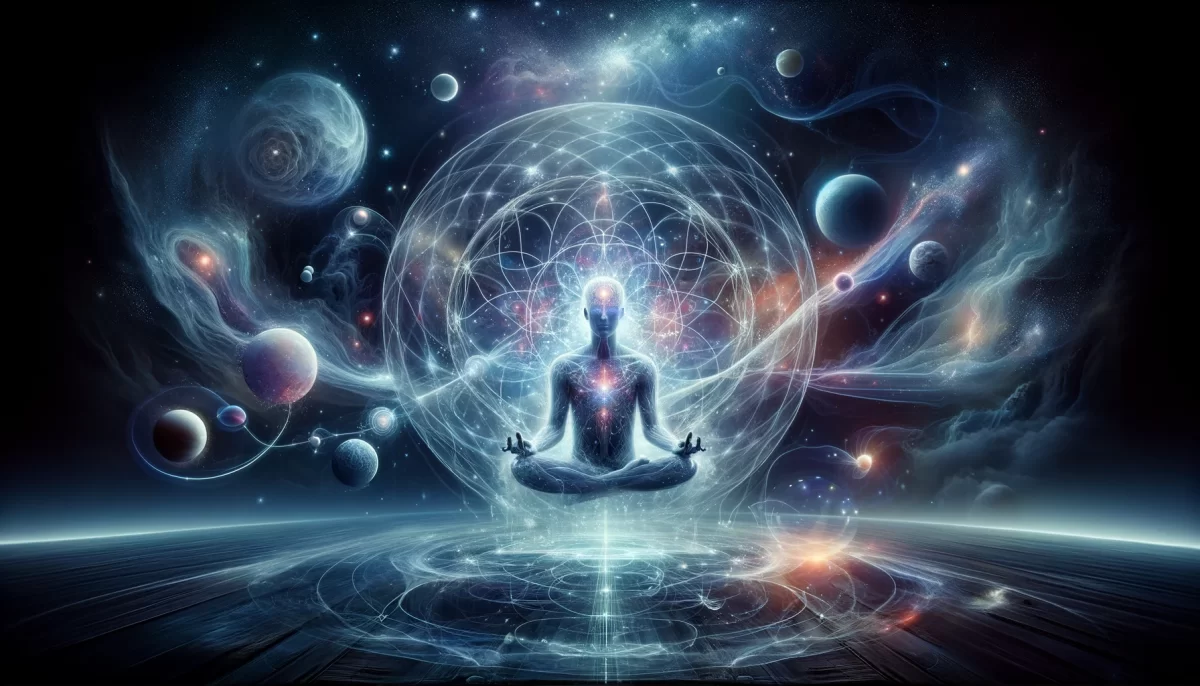


Leave a Reply